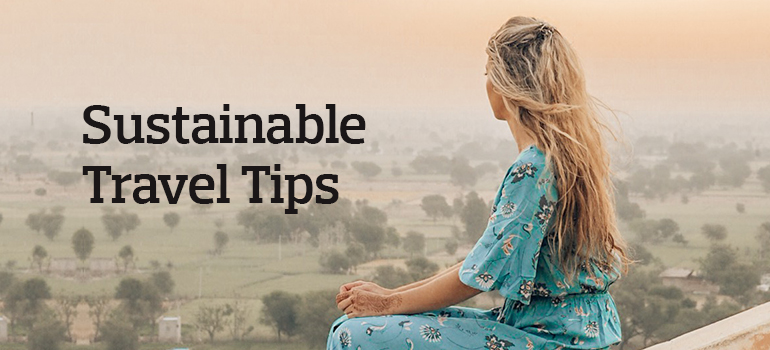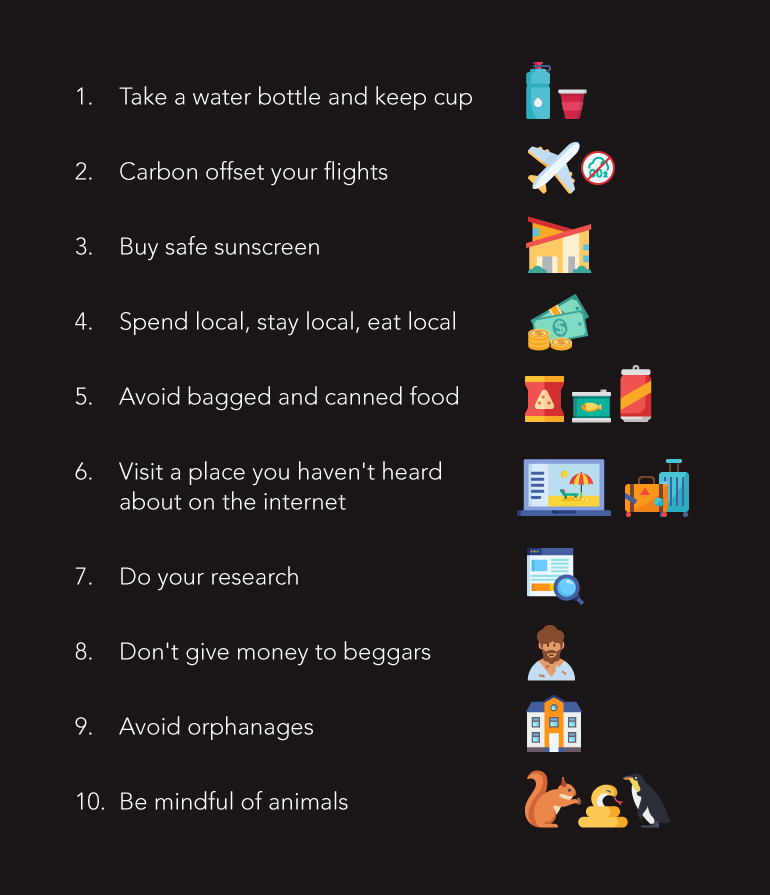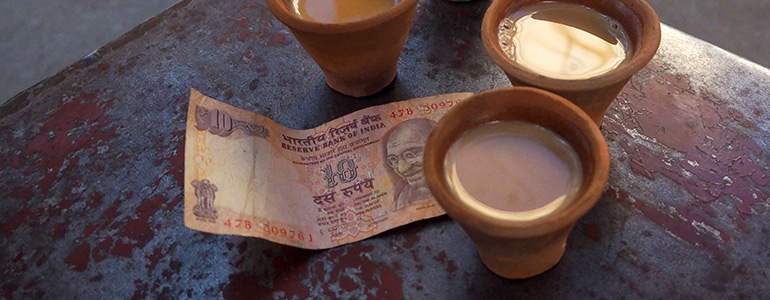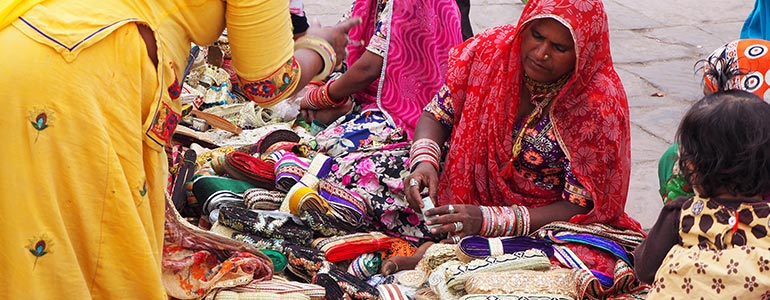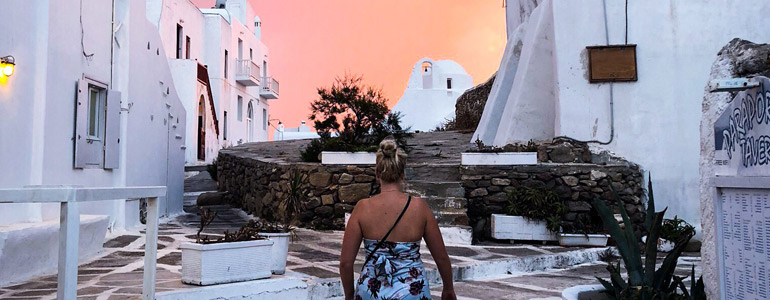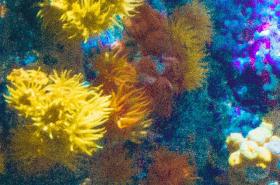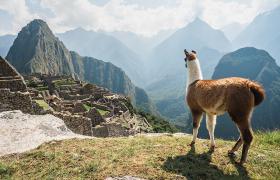Quick Contact

1st May 2019
According to the World Travel Organisation, in 2016 there were 1.3 billion tourist arrivals globally. This is expected to hit 1.8 billion arrivals in 2030.
At Travel Money NZ we are huge advocates for travel and the benefits it can give individuals and societies as they embrace cultures different from their own. It is an opportunity to shed the creature comforts of home and immerse yourself in an alternate reality of sorts.
We also, however, recognise that our penchant for travel can harm the environments and cultures we are visiting.
Many countries rely on tourism for economic growth and the prosperity of their people, and it is evident that tourists have no plans to stop travelling. As a result, there is a pressing need for individuals to embrace sustainable travel and ensure they are investing their travel money into avenues that support responsible travel practices.
At its core, responsible or sustainable travel is tourism that meets the needs of current generations without compromising the ability for future generations to enjoy it. It addresses the needs of visitors, the industry, the environment and host communities.
“I’m going to Cambodia. I’ve heard it’s beautiful and I want to visit before it gets overrun by tourists like Bali” This sentiment is echoed daily across New Zealand. Sub out Cambodia for your country of choice, and I guarantee you have either said this or heard a friend or family member say something similar. As tourists, we recognise the toll taken on some of our favourite destinations, and instead of working to fix the problem we instead flock elsewhere, continuing to perpetuate the cycle.
So, how can we break the cycle? How can we, the humble Kiwi traveller, make an impact on this overwhelming phenomenon? Unfortunately, we can’t solve the problem overnight; however, we can all play a part that will contribute to a broader global effort. The best bit? It’s not even that hard to practice sustainable travel habits on your next overseas adventure.
We’ve compiled a list of 10 sustainable travel tips to ensure you’re travel footprint is as small as possible.
Let’s break these down a little more.
1. Take a water bottle, keep cup, cutlery, container and toiletries
Reduce your waste and save money by taking the stuff you already have at home. It might sound insignificant, but imagine you are taking a 14 day holiday around Europe. Assuming you buy a bottle of water, a coffee and takeaway meal every day, and stay at 5 different hotels, you would be using (and throwing out) the following:
- 14 plastic water bottles
- 14 coffee cups
- 14 sets of plastic cutlery
- 5 bottles of shampoo/ conditioner
By bringing your own reusable items, you are not only cutting down on almost 50 things that would go straight to landfill, but you are also saving yourself some cash that could be spent elsewhere. 14 x $3 for a bottle of water is $42, or 21 freshly made croissants in Paris…
In India you can get chai tea in reusable terracotta cups.
2. Carbon offset your flights
Most don’t realise how much flights contribute to greenhouse gas emissions. Put simply, a return economy flight from Sydney to London produces the same amount of emissions as running an air conditioner during the day for 7133 hours (298 days). By 2030, aviation will account for more carbon emissions than the entire European Union.
The best way to minimise your footprint (apart from not flying all together) is to carbon offset your ticket. Starting from as little as $2 for domestic flights and increasing alongside the distance you travel, the ‘carbon offset charge’ is donated to projects that help stop other emissions getting into the atmosphere like renewables or forestry projects. Double check with your airline to see where your money is being donated and ensure it is accredited. While it adds a little bit to your airline ticket, it is a small price to pay for the amount of carbon we release on our adventures.
3. Buy safe sunscreens
Many sunscreens contain the chemicals oxybenzone and octinoxate, both of which have been found to increase coral bleaching.
Sunscreen is generally a necessity when travelling and we don’t recommend avoiding it (sunburn is not a fun souvenir). Instead, look for options that don’t include the chemicals and Nemo will be grateful.
4. Spend local, stay local, eat local
Ensure your tourist dollars are funnelled back into the local economy. Avoid chain restaurants, hotels and souvenir shops, instead eat at smaller, local establishments, purchasing souvenirs from local artists and staying in homestays or more modest hotels.
Not only will you get a more authentic experience, but you avoid the economic benefits from your tourism leaking out of the host country and into the pockets of overseas multinationals.
Purchase your souvenirs from local handicraft markets.
5. Avoid bagged and canned food
This one is pretty simple: packaged food leads to more waste. Not to mention the fact you are in a new destination with food vendors ready and waiting to cook you meals sans packaging.
Don’t forget to put your leftovers in the container you brought in point #1. Late night snack + less food wastage = happy days.
<cambodian curry picture>
6. Visit a place you haven’t heard about on the internet and social media
The rise of social media has led to tourists visiting sites inspired by a need to get picture perfect snaps for their Instagram. The culmination of this and geotagging locations has led to certain spots being overrun by tourists.
Venice is a perfect example, as it is currently sinking under the weight of thousands of tourist footsteps every day. What’s worse, is that most tourists are pilling out of cruise ships to spend 30 minutes in Venice to only purchase a gelati.
While these locations are popular for a reason, there is a whole world out there of relatively untouched areas for you to explore. Not only are you spreading your tourist dollars out and supporting a new economy, but things are likely to be cheaper as they haven’t seen the effects of tourism fuelled inflation.
7. Do your research
This applies to all aspects of your trip; tours, accommodation, day trips, restaurants, flights and souvenirs. Researching the websites and review sites will provide invaluable information and insight into how ethical and sustainable an organisation’s practices are.
Look out for hotels and guesthouses that mention responsible travel or have a ‘good stewards program’ and book with tour operators that employ local guides and promote sustainable tourism.
8. Don’t give money to beggars
While they may tug at the heartstrings, giving money to beggars (especially children) will encourage them to keep begging and stay on the streets. Children will often keep begging to earn money instead of going to school, which can lock them in the poverty cycle due to lack of education. In some popular hotspots, beggars are part of a broader scam to get money off tourists.
Instead of giving money directly to a beggar, volunteer your time or money to a charity.
9. Avoid orphanages
First and foremost, children are not tourist attractions. Although most tourists undertaking ‘voluntourism’ or simply visiting orphanages only have the best intentions, they often do more harm than good.
Frequently the children are not actually orphans, with some orphanages taking children from their homes to take advantage of tourists and children for donations. As the demand for volunteering at orphanages has increased, so too has the number of orphanages. A rate that is not in line with the fact that poverty is decreasing.
You can explore the streets of Greece without climbing on a donkey.
10. Be careful with any activity involving animals
Without a voice, animals are often taken advantage of to make a profit. Whether it’s watching a horse in the circus (bad) or riding a donkey in Santorini (very VERY bad), the animals can be subject to terrible conditions and long days.
If you are planning on doing an activity that involves animals it is imperative you do your research first to ensure they are treated with respect. Quite often review sites will paint a very accurate picture of how the animals are treated. Likewise, if you see animals being treated poorly, please report it.
Travel is an incredibly enriching activity, and we are lucky enough to live in a time where it is both accessible and affordable. This luxury is laced with a huge responsibility though, and we must respect this earth and the lives of others to savour the joy of travel for generations to come.
For more information on how you can spend your travel money to support sustainability, be sure to visit one of our 150+ stores across Australia and New Zealand. If you’re returning home with leftover foreign currency, don’t forget to donate your coins to Small Change Big Difference as well.
This blog is provided for information only and does not take into consideration your objectives, financial situation or needs. You should consider whether the information and suggestions contained in any blog entry are appropriate for you, having regard to your own objectives, financial situation and needs. While we take reasonable care in providing the blog, we give no warranties or representations that it is complete or accurate, or is appropriate for you. We are not liable for any loss caused, whether due to negligence or otherwise, arising from the use of, or reliance on, the information and/or suggestions contained in this blog.
